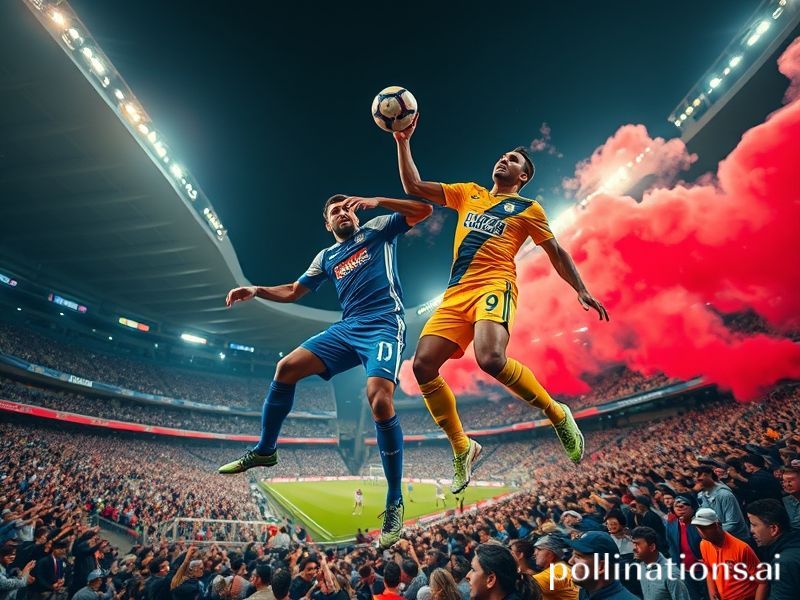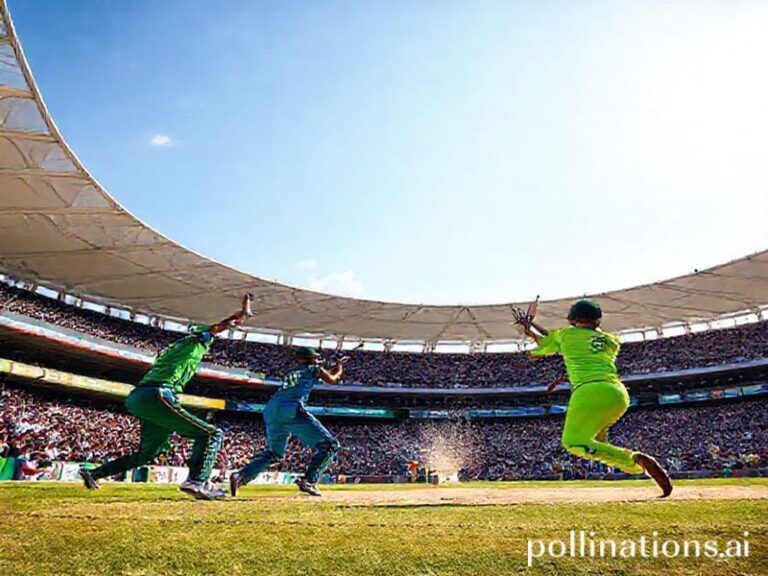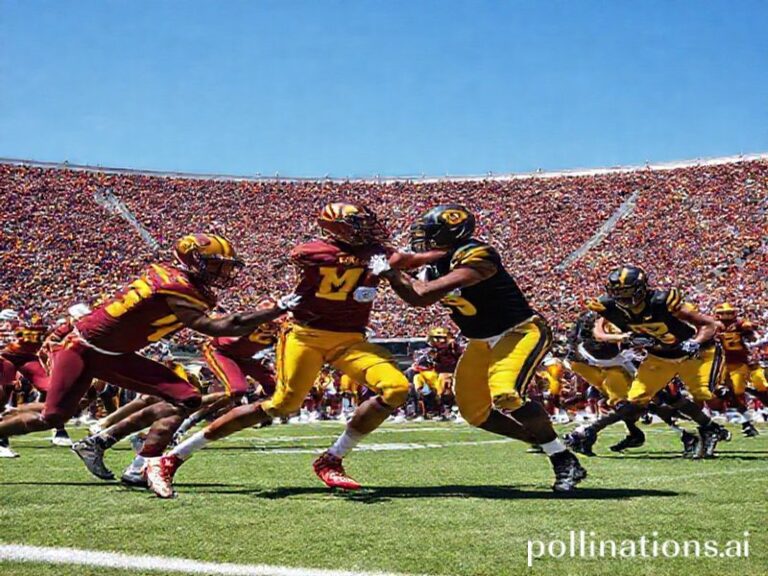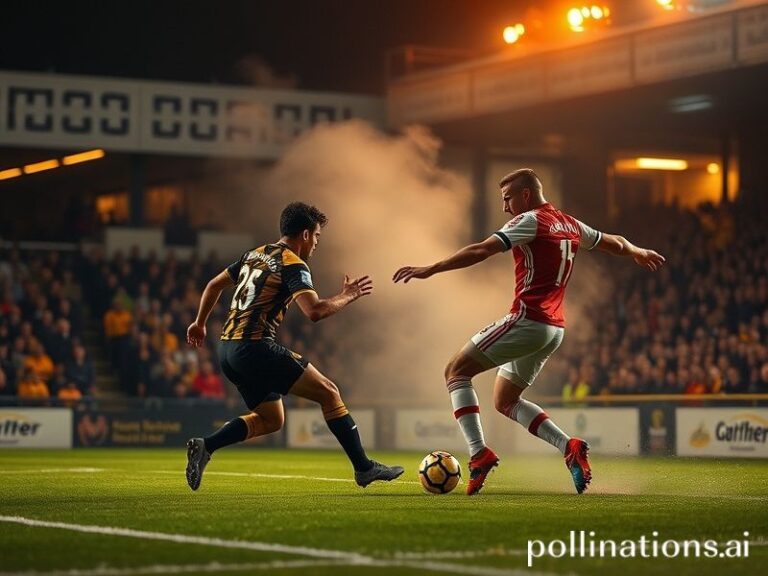Saudi Super-Derby: When Football Became a Geopolitical Infomercial
Al-Ittihad vs Al-Nassr: The Derby That Became a Global Reality Show
In the Kingdom where the desert meets the deluge of petrodollars, the Jeddah-Riyadh axis has always been a polite cold war fought with skyscrapers and sovereign wealth. Tuesday night, though, the temperature rose to the precise level required for the world’s most expensive mid-life crisis to be broadcast in 4K HDR: Al-Ittihad versus Al-Nassr, now rebranded as Cristiano Ronaldo’s vanity project versus Karim Benzema’s tax-free retirement plan.
From the vantage point of a press box that smelled faintly of saffron and disillusionment, the match felt less like a football contest and more like a G20 side-summit played on grass. In one corner: Ronaldo, 38, flexing abdominal muscles that have their own sponsorship tiers. In the other: Benzema, newly devout and newly rich, looking like a man who has read the fine print on immortality and decided the money was better. Between them, a supporting cast of European cast-offs earning more per minute than most UN peacekeepers earn per year.
The global implications? Let’s start with soft power, that euphemism governments use when they want to weaponize entertainment. Saudi Arabia’s Public Investment Fund has essentially turned the Saudi Pro League into a sovereign Netflix: binge-worthy, lavish, and slightly embarrassing if you think about it too long. Every touchline sprint by Ronaldo is now a geopolitical statement—proof that if you pay enough, even the twilight of Western sporting icons can be relocated to the Persian Gulf. Western democracies, busy lecturing the world about human rights, suddenly find themselves negotiating broadcast rights for a league that pays Lukaku’s grocery bill.
Meanwhile, back in places where football is still played on muddy pitches, the irony is thicker than a Russian oligarch’s offshore account. African academies that once exported raw talent to Europe now watch their best teenagers dream, not of Anfield or the Bernabéu, but of a nightclub in Riyadh named after a falcon. South American scouts report that kids in Rosario have started practicing goal celebrations that end with a respectful bow toward Mecca—just in case the algorithm is watching.
The match itself ended 3-2 for Al-Nassr, a scoreline dutifully flashed on LED tickers from Lagos to Laos. The highlights will be clipped, memed, and monetized within minutes, ensuring that the kingdom’s diversification strategy (Vision 2030, slogan: “Yes, We Have Indoor Skiing”) reaches every corner of the planet where people still stare at screens to forget their own problems.
Yet beneath the pyrotechnics and the carefully curated hashtags (#RonaldoVsBenzema trended above #ClimateEmergency, because priorities), there’s a quieter transaction happening: the commodification of legacy itself. When Neymar limped off injured earlier this season, the local commentary praised his “sacrifice,” a linguistic sleight of hand that turns a groin strain into a diplomatic overture. Every cheer in the stadium is another cubic meter of reputational LNG, shipped straight to the West’s guilty conscience.
And what of the fans? The locals, draped in perfectly merchandised scarves, wave smartphones instead of banners, livestreaming their own enthusiasm for followers they’ll never meet. Expat workers from Kerala to Kerala via Kathmandu crane from the upper tiers, their cheers echoing the universal language of economic migration: “I may never afford to be you, but at least I can watch you pretend to try.”
By the final whistle, the desert night had cooled to a civilized 34°C, perfect for post-match interviews conducted entirely in corporate clichés. Ronaldo praised the “amazing project,” Benzema invoked “respect,” and the journalists—thirsty, jet-lagged, and professionally obligated to pretend this matters—filed copy that will be translated into forty languages and forgotten by Thursday.
In the end, Al-Ittihad vs Al-Nassr is not about football any more than Davos is about skiing. It is an infomercial wrapped in a morality play, a testament to humanity’s enduring talent for monetizing nostalgia while convincing itself it’s progress. Somewhere in the distance, a drone camera zooms out, capturing the stadium lights dissolving into the same darkness that blankets Yemen, Ukraine, and every other place the broadcast chooses not to linger. The world keeps spinning, the money keeps flowing, and the beautiful game keeps wondering whether it sold its soul or simply leased it with an option to buy.







